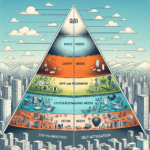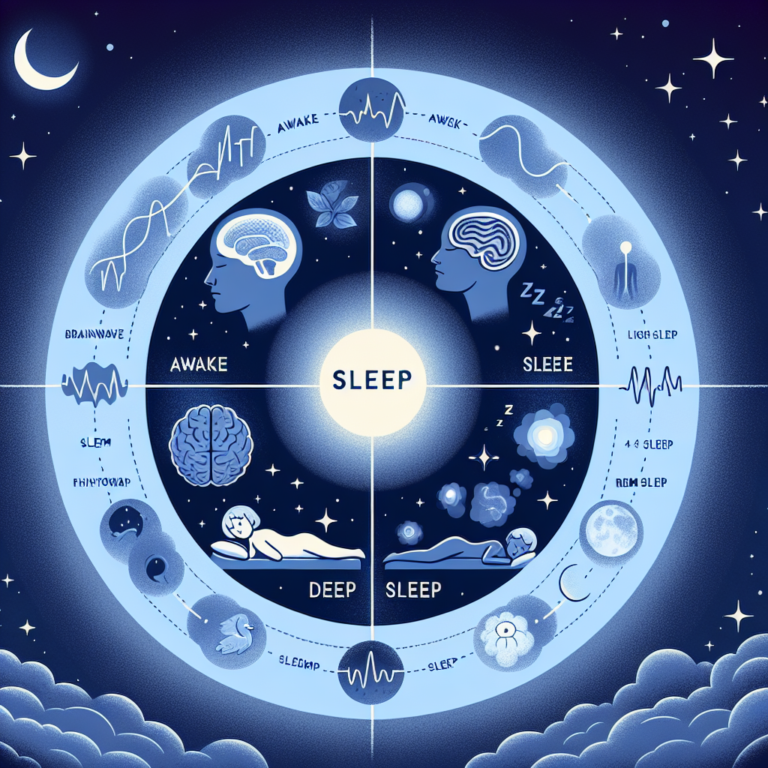
The Ultimate Guide to The Role of Gratitude: How Psychological Practices Can Enhance Happiness
Introduction
Imagine waking up each morning feeling genuinely excited about the day ahead. You’re not just counting down the hours until bedtime; instead, you’re ready to embrace life and all of its opportunities. This state of mind isn’t a stroke of luck—it can be developed through psychological practices, particularly the nurturing of gratitude. In this article, we’ll explore The Role of Gratitude: How Psychological Practices Can Enhance Happiness, revealing how cultivating a grateful mindset can transform your life and elevate your emotional wellbeing.
Understanding Gratitude
Gratitude is more than just saying "thank you." It is a profound acknowledgment of the positive aspects of life that often go unnoticed. Whether it’s a supportive friend, a beautiful sunset, or a warm cup of coffee, recognizing these moments can have a psychological impact that enhances overall happiness.
The Science of Gratitude
Research overwhelmingly supports the idea that expressing gratitude can lead to increased wellbeing. According to a study published in the Journal of Personality and Social Psychology, participants who engaged in regular gratitude journaling reported higher levels of life satisfaction, a decrease in symptoms of depression, and better health overall.
Key Statistics
| Study | Findings |
|---|---|
| Emmons & McCullough (2003) | Grateful participants reported higher well-being. |
| Wood et al. (2010) | Gratitude interventions increased happiness levels. |
| Froh et al. (2011) | Gratitude linked to higher self-esteem and optimism. |
These studies illustrate The Role of Gratitude: How Psychological Practices Can Enhance Happiness and emphasize its importance in emotional health.
Practical Psychological Techniques
Let’s delve into specific practices that can help cultivate gratitude and, consequently, happiness.
1. Gratitude Journaling
One of the simplest and most effective ways to enhance gratitude is through journaling. Taking a few minutes each day to jot down things you are thankful for can shift your focus from what you lack to what you have.
Case Study: The Power of Journals
A study involving college students found that those who kept a gratitude journal reported increased happiness and satisfaction with life over a ten-week period.
Analysis: This case study demonstrates a clear connection between a psychological practice and an increase in happiness levels. Regularly noting positive experiences can create a cycle of positivity.
2. Daily Affirmations
Integrating daily affirmations into your routine can boost gratitude. Phrases like "I appreciate the love in my life" or "I am thankful for a supportive family" can reinforce a positive mindset.
Case Study: Affirmations in Action
In a group of individuals participating in a six-week course focused on affirmations and gratitude, 85% reported feeling more optimistic and connected to others by the end of the program.
Analysis: This group’s outcomes highlight The Role of Gratitude: How Psychological Practices Can Enhance Happiness through positive self-talk, reinforcing both gratitude and emotional health.
3. Mindfulness and Meditation
Mindfulness practices encourage you to live in the present moment, promoting an awareness of what you are grateful for right now.
Case Study: Mindfulness Research
A meta-analysis of studies on mindfulness revealed that individuals who practiced mindfulness reported significantly higher levels of gratitude and emotional regulation.
Analysis: The correlation seen in this research underscores how mindfulness practices can foster gratitude, linking them directly to enhanced happiness.
4. Acts of Kindness
Performing acts of kindness can create a sense of fulfillment and gratitude. This could be as simple as complimenting a colleague or volunteering your time.
Case Study: Kindness Counts
A study highlighted that people who engaged in acts of kindness reported a greater sense of gratitude and satisfaction in their lives.
Analysis: This study reinforces the idea that kindness not only affects others but also enriches the person offering it, illustrating The Role of Gratitude: How Psychological Practices Can Enhance Happiness through altruism.
5. The Gratitude Visit
Consider writing a letter to someone who has positively impacted your life, expressing your appreciation for them. Then, deliver it in person.
Case Study: Heartfelt Letters
Research showed that individuals who engaged in gratitude visits experienced significant increases in happiness and reductions in depressive symptoms.
Analysis: This practice exemplifies how expressing gratitude can elevate happiness levels, demonstrating its profound psychological benefits.
The Ripple Effect of Gratitude
Cultivating gratitude doesn’t just benefit the individual; it has a ripple effect, influencing relationships, communities, and workplaces.
Enhancing Relationships
Gratitude can strengthen relationships by fostering appreciation and connection. According to studies, expressing gratitude in relationships leads to increased mutual affection and support.
Boosting Workplace Happiness
In professional settings, gratitude strengthens team dynamics and morale. Teams that celebrate achievements and express gratitude toward one another are often more engaged and productive.
The Challenges of Practicing Gratitude
While the benefits of gratitude are substantial, there can be challenges:
Overcoming Negativity Bias
Human brains are wired to focus on negatives rather than positives. Overcoming this bias requires conscious effort and practice to redirect thoughts toward gratitude.
Times of Struggle
In difficult times, it may feel unnatural to express gratitude. However, challenges can also become learning opportunities. Finding even the smallest silver linings can be pivotal during tough periods.
Conclusion
The Role of Gratitude: How Psychological Practices Can Enhance Happiness is undeniable. From gratitude journaling to acts of kindness, each practice offers a pathway to an enriched life filled with joy and connection. By integrating these practices into your daily routine, you will not only enhance your own happiness, but also contribute positively to the lives of those around you.
Inspirational Takeaway
Embrace gratitude not just as a fleeting feeling, but as a lifelong practice. Every moment of appreciation serves to elevate not only your happiness but that of others as well. Start today, and watch how your life transforms!
FAQs
1. What are simple ways to practice gratitude daily?
Engage in gratitude journaling, express appreciation to friends, or reflect on positive experiences before bed.
2. Can gratitude really improve mental health?
Yes, studies have shown that gratitude can reduce symptoms of depression and increase overall mood.
3. Is there a right way to keep a gratitude journal?
No set rules exist; simply write what you appreciate, whether it’s a single moment or multiple events.
4. How long does it take to notice the benefits of gratitude?
While experiences vary, many individuals report feelings of increased happiness in just a few weeks of practicing gratitude consistently.
5. Can gratitude help in my professional life?
Absolutely! Practicing gratitude can enhance relationships, improve teamwork, and increase job satisfaction in the workplace.
By implementing even a few of these psychological practices centered around gratitude, you will see a notable improvement in your happiness and emotional wellbeing. Remember, gratitude is a powerful tool that has the potential to change your life and the lives of those around you.

















